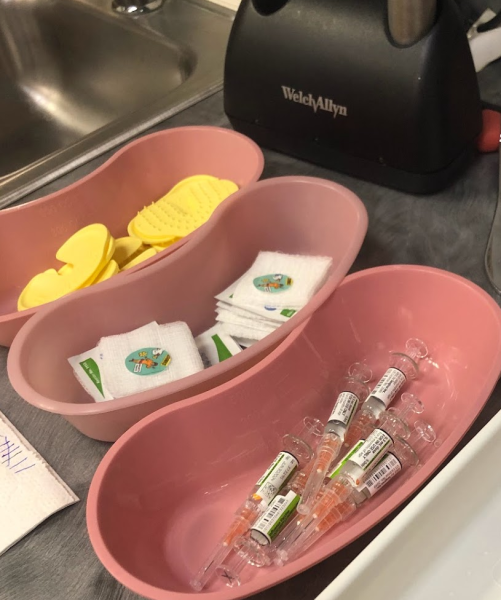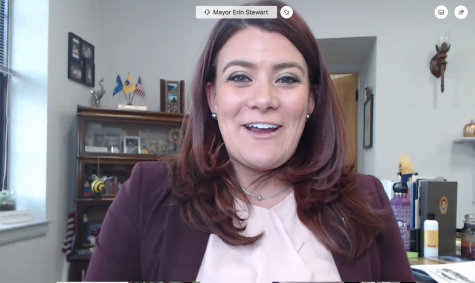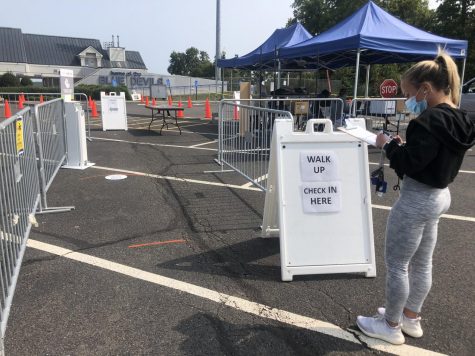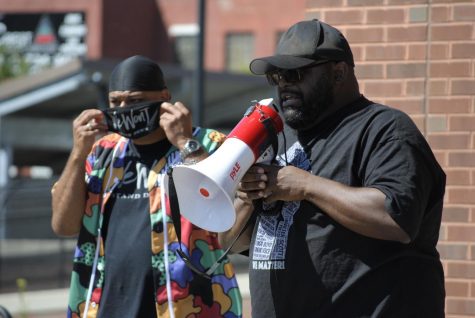Mayor Stewart, Please Spend More On Annihilating New Britain’s Opioid Problem
September 7, 2018
Walking around downtown New Britain gives a picturesque glimpse into the bustling heart of the city. Home to historical architecture and flourishing businesses, it’s a reflection of New Britain’s status as one of Connecticut’s greatest industrial forces in the 19th and 20th centuries.
But there resides a problem among the landmarks and the nine-to-five energy. Look closely: you’ll see people staring up at the sky on benches, eyes bloodshot and pupils dilated. Like the rest of Connecticut, New Britain has an opioid infestation plaguing its streets and it’s spreading. Fast.
In 2016, New Britain lost 35 residents to fatal overdoses, ranking fourth in the state in the number of overdose deaths, according to the Office of the State Chief Medical Examiner. In 2017, that number rose by one to 36—one too many, 36 too many. Since Aug. 2017 until now, New Britain’s Emergency Medical Services has seen an average of five overdose deaths a month.
1,038 died from accidental overdose in 2017 in Connecticut. The National Institute on Drug Abuse recognizes Connecticut as among the top ten states with the highest rates of opioid-related overdose deaths, with 24.5 deaths per 100,000 persons in 2016; the national average in 2016 was 13.3 deaths per 100,000 persons.
Almost all of these deaths were related to prescription painkillers and fentanyl, a synthetic opioid that, especially when cut with other drugs like heroin, is incredibly dangerous.
New Britain has become a big contributor to these devastating numbers and is on course to provide an even larger sacrifice of human life. It’s time for that to change, and a crucial step in the right direction is investing more dollars into programs geared toward helping addicts recover and in educating people away from the needle.
However, that’s not where New Britain’s money is going. Instead, Mayor Erin Stewart spent $354,000 on a skewed environmental study to push a mining expansion plan that ultimately failed. In addition, the $7 million Beehive Bridge is set to open in 2019.
That’s not to say that New Britain doesn’t have services. Farrell Treatment Center deals with addiction and abuse treatment, and Wheeler Clinic provides walk-in, same-day care. Other detox centers in surrounding towns exist, and the Hospital of Central Connecticut is right in the middle of the city. Moreover, local police are cracking down on drug possession and trade more than ever, recently busting a New Britain individual who was in possession of 80 bags of heroin in July. Yet, given the size of the problem, that’s not enough. New Britain needs more.
“We’re doubling and tripling down on our efforts. But we recognize we can’t arrest our way out of it,” New Britain Police Chief Wardwell told the New Britain Herald. “Treatment providers need to be properly funded and supported, as does the rest of the criminal justice system.”
With more treatment opportunities, continued progress can be made in eradicating this problem. Treatment enables people to counteract addiction’s disruptive effects on their brain and behavior and regain control of their lives, the National Institute on Drug Abuse says. Recovering addicts can become productive members of society and thus be a part of the New Britain economy.
You can make New Britain as pretty as you want with bridges and can promise financial growth to fuel optimism even when it’s doomed to fail all you want, but that won’t erase the opioid epidemic. New Britain is struggling.
Mayor Stewart, please do your part by pouring money into treatment and aid. Think of the people.


















Aram Ayalon • Sep 7, 2018 at 2:20 pm
Shalom Kristina,
As a professor of education in CCSU and a city Alderman in New Britain for ward 3 (the poorest in New Britain), I applaud you for your thoughtful op-ed and call for action. If you could organize perhaps an event on campus to address this issue and propose a community engagement project between CCSU and New Britain, I would love to help in any way I can.
Yours,
Dr. Aram Ayalon
Department of Education Leadership, Policy, and Instructional Leadership
Alderman, City of New Britain Common Council, Ward 3 rep.